Publications & Reports Search
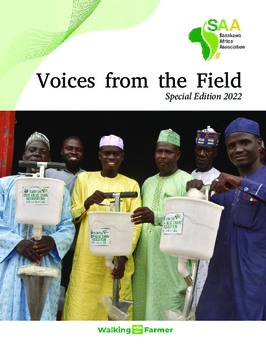
Publications & Reports / Other Publications
2022 edition Voices from the Field
March.13.2023
SAA has released the 2022 edition of Voices from the Field. This is a collection of stories of the farmers SAA work with in 4 countries: Ethiopia, Nigeria, Mali and Uganda.
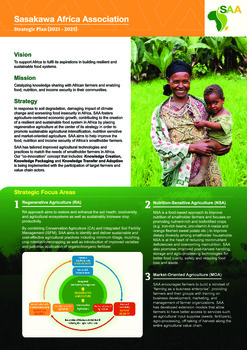
Publications & Reports / Other Publications
SAA Strategy 2021-2025 (one-pager)
January.26.2023
This one-pager document summarizes the SAA Strategy 2021-2025.
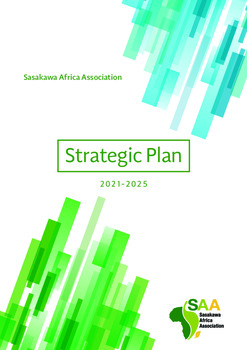
Publications & Reports / Other Publications
SAA Strategy 2021-2025 (Full document)
January.11.2023
This is a full document of the SAA Strategy 2021-2025.
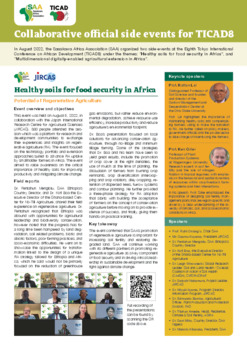
Publications & Reports / Other Publications
[Event Report] Collaborative official side events for TICAD8 (one-pager)
December.27.2022
This one pager document summarizes the two official side events SAA organized for Tokyo International Conference on African Development VIII (TICAD8) in 2022.
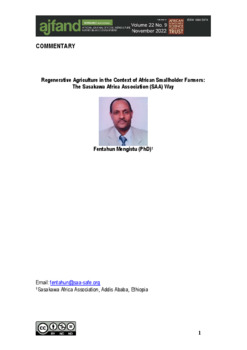
Publications & Reports / Other Publications
Regenerative Agriculture in the Context of African Smallholder Farmers: The Sasakawa Africa Association (SAA) Way
November.15.2022
A commentary of Dr. Fentahun Mengistu, Country Director of Ethiopia Office, entitled "Regenerative Agriculture in the Context of African Smallholder Farmers: The Sasakawa Africa Association (SAA) Way" was posted on African Journal of Food and Nutrition Development (AJFAND), peer reviewed scholarly journal envisaged to enable dissemination and sharing of food and nutrition information issues on the continent.
African Journal of Food and Nutrition Development (AJFAND) Volume 22 No. 9, November 2022
Commentary
"Regenerative Agriculture in the Context of African Smallholder Farmers: The Sasakawa Africa Association (SAA) Way"



